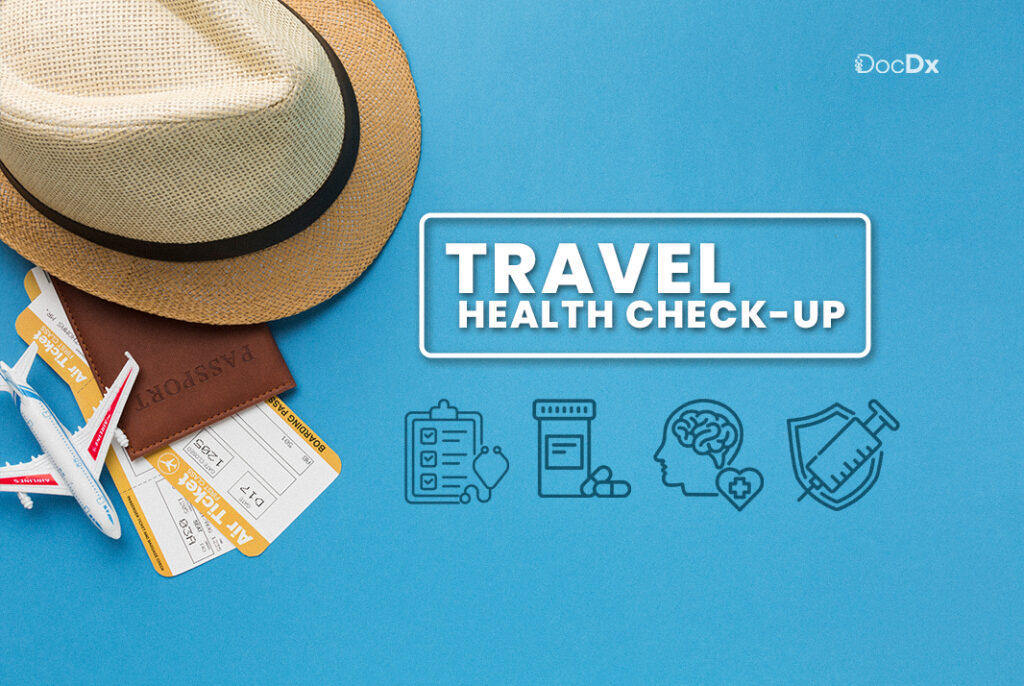Planning a trip this summer? Whether you’re heading to the tropics or exploring mountains, one thing should be high on your to-do list: a travel health check-up. It’s not just about getting shots; it’s about making sure your body is as ready for your vacation as your suitcase is.
Why Summer Travel Requires Extra Health Preparation
Summer is prime time for travel, and that means exposure to different climates, foods, time zones, and germs. All that fun can turn into a health hazard if you’re not ready. The good news? A simple check-up can help prevent travel mishaps.
What Is a Travel Health Check-Up?
A travel health check-up is a consultation with your primary care provider that ensures you’re fit for travel, up-to-date on vaccines, and have the necessary prescriptions. It’s like getting a green light for your adventure.
Who Needs One?
Pretty much everyone. Whether you’re traveling solo, with kids, or as a senior, having a personalized health game plan helps reduce the risk of illness during your travels.
Key Components of a Travel Health Check-Up
General Physical Exam
Your provider will evaluate your vitals and overall health. If you’re due, you can book your physical exam in Maryland and tick it off the list before your trip.
Travel Vaccinations
Some countries require vaccines like yellow fever or hepatitis A. Don’t wing it—travel vaccinations are your ticket to safe travel.
Medication Review
Do you have enough refills? Can your meds be taken across borders? Your provider will help adjust prescriptions if needed.
Mental Health Screening
Travel stress is real. If you’re dealing with anxiety or depression, your PCP may recommend a check-in or refer you for depression treatment.
Don’t Skip the Physical Exam
Primary Care’s Role in Your Travel Prep
Your PCP is your health quarterback—guiding, diagnosing, and treating. Primary care services cover much more than check-ups; they’re your frontline defense against vacation spoilers.
Common Travel-Related Health Risks
Sun Exposure and Dehydration
Long flights, beach days, and hikes can lead to major dehydration. Pack electrolyte tablets and drink water—lots of it.
Traveler’s Diarrhea
It’s not fun. Stick to bottled water, avoid raw foods, and ask your provider about meds to take as a backup.
Altitude Sickness
If you’re heading to high elevations, your doctor may suggest altitude medication.
Insect-Borne Diseases
From dengue to Zika, mosquitoes carry risks. Bring repellent, wear long sleeves, and consider preventive meds.
Vaccines You Might Need
Not all vaccines are created equal. You might need:
- Typhoid
- Hepatitis A/B
- Yellow Fever
- Rabies (for adventure travelers)
Don’t wait until the week before your trip—vaccines take time to kick in.
Tailor Your Check-Up to Your Destination
Domestic vs. International Travel
Going to Colorado? You probably don’t need shots. Going to India? Whole different story.
Know the Risks of Your Destination
Check for common illnesses, air quality, altitude, and even water quality. Your PCP will help adjust your travel prep based on these.
Traveling With Kids or Seniors?
Children and older adults are more sensitive to travel-related stress. Kids may need additional vaccinations, and older adults should be monitored for chronic conditions.
Pack a Travel Health Kit
Include:
- Prescription meds
- Pain relievers
- Anti-diarrheals
- Sunscreen
- Bug repellent
- Bandages
Your doctor can help personalize this based on your destination.
Your Primary Care Provider: The Real MVP
Want ongoing health support, even after your trip? Stick with your PCP. They provide long-term care, accurate diagnostics, and health monitoring through comprehensive services.
Need Diagnostic Testing?
Your doctor can recommend medical diagnostic services to rule out or prepare for conditions that could flare up while you’re away.
Book Your Check-Up Early
Aim to schedule your travel health check-up at least 4–6 weeks in advance. Bring your travel itinerary and vaccination records so your doctor can tailor advice.
Ask These Questions During Your Visit
- What vaccines do I need for my destination?
- Do I need malaria pills?
- Can I get a refill for my prescriptions?
- What emergency meds should I pack?
- Is the tap water safe where I’m going?
Staying Healthy On the Go
Hydrate. Eat smart. Wear sunscreen. Move your body—but not too much. And most importantly, listen to your body when it says “rest.”
What to Do When You Return
Back from your adventure? Don’t ignore symptoms like fever, fatigue, or stomach issues. Follow up with your PCP if needed.
Conclusion
Summer travel should be exciting, not exhausting. A bit of planning and a quick visit to your primary care provider can keep your getaway smooth and healthy. Don’t just pack your bags—pack your peace of mind too.




